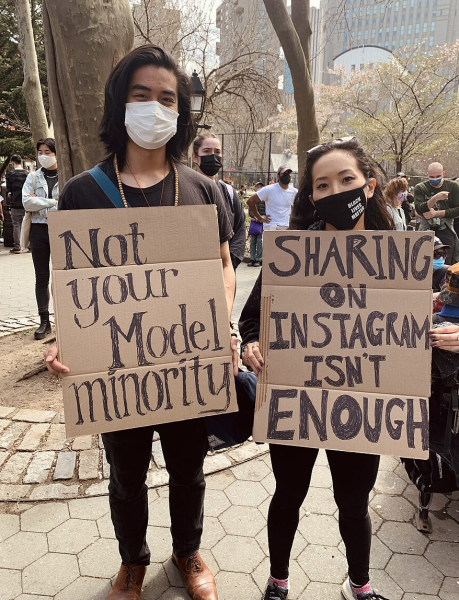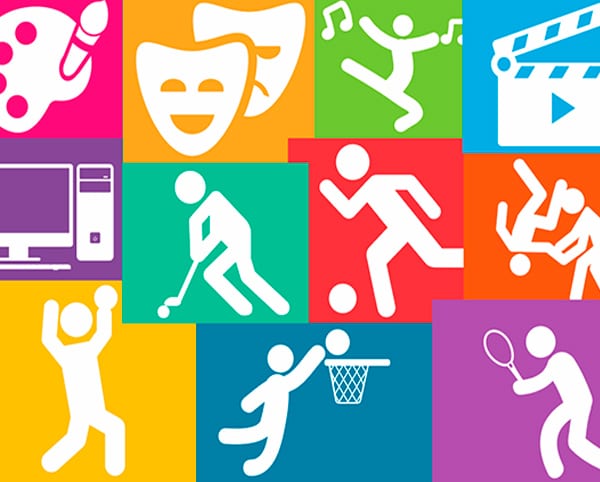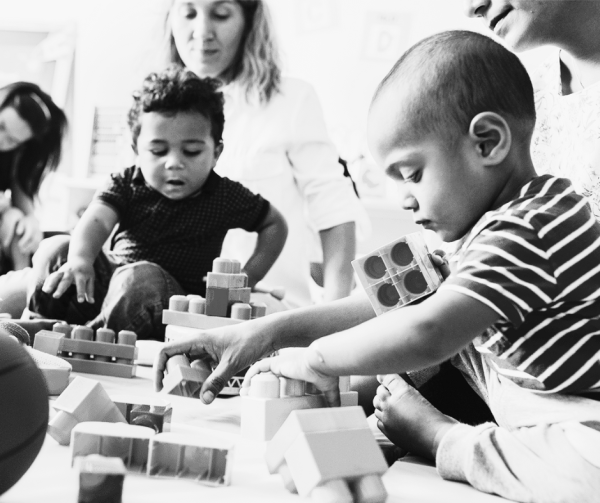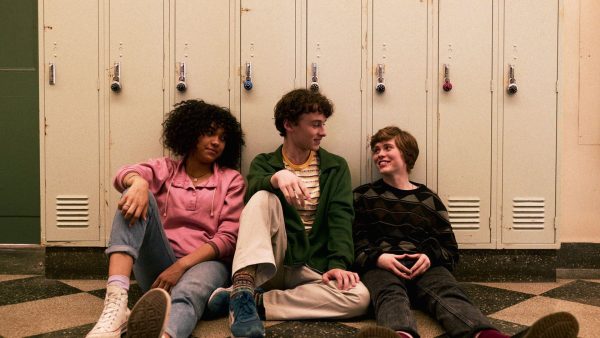The dangerous effects of comparison
While a little competition can be healthy, placing too much emphasis on how you stack up against your peers can be problematic.
Photo courtesy of psychologytoday.com
Comparisons between peers can be dangerous
April 6, 2022
Imagine this: the results of your latest test were just released and your peers are comparing their scores. Everyone has done well with negligible differences between their grades, but when you take a glance at yours, you immediately realize you’ve done worse than anyone in the class, even your friends, with whom you always felt you were on the same level. You say, “I did well,” even though you disagree, and you begin to reevaluate the courses you selected for next year.
You start to think, “Should I really be taking honors? If I can’t keep up with my friends, should I move down to accelerated and meet some people I’ll be able to compete with?”
It’s common to compare oneself to those in their surrounding environment, especially in a school or a place where excellence in grades, performance, or popularity is highly relevant and praised. For some, all they can hone in on is who they are beating and who they are losing to.
In sophomore Varsha Patel’s case, she noted that in her school life she feels as though competitiveness is present amongst her and her peers.
“It puts a lot more stress on me, [be]cause, not only do I have to be good enough for myself, but I have to be good enough for them too,” she said.
According to an article from Notre Dame Law School by students Stephen M. Garcia, Avishalom Tor, and Tyrone M. Schiff, oftentimes what an individual compares themselves to is based upon three factors. First, an individual’s interest in a topic or how relevant the topic is to them; second, “is the degree of the [individual’s] similarity to the [competition], [as] similar rivals exhibit greater comparison concerns than those less similar. The third variable is the degree of the [individual’s] relationship closeness to the [competition], where comparison concerns are stronger when the target is interpersonally close (e.g., a friend or sibling),” said the article.
As in the scenario described above, school is the relevant topic of interest for most RV students, thus relationship closeness and an individual’s similarity to the competition are more prominent in who will become our competition.
According to the article, “Similarity refers both to similarity in terms of ability or performance… [as well as the] similarity of personal characteristics or attributes.” Put simply, similarities in characteristics or areas of skill directly result in an increase in competitiveness.
Likewise, according to the article, “relationship closeness amplifies comparison concerns and thus competitiveness…For example, studies have found that participants provided fewer helpful clues to friends than to strangers on competitive tasks.”
In such a case of relationship closeness, increased comparison and competition potentially leads to strained relationships as “further studies found that people feel more threatened by the success of their friends than by that of strangers.”
This is especially true when there are also similarities in abilities or characteristics and when the competing individuals are constantly trying to surpass the other. This unhealthy behavior in close relationships leads to the following;
“…being consistently outperformed by a similar counterpart will likely lead you (a) to perceive the task at hand as being less relevant or (b) to reassess your counterpart’s similarity,” said Garcia, Tor and Schiff in the article. “When neither outcome occurs, the game [or relationship] will remain highly competitive, or you will exit.”
To summarize, in a highly competitive situation where you are constantly outperformed by a similar competitor, your interest in the relevant topic will decrease, your evaluation of what made the competitor similar to you will change, the competition will continue with ever-increasing stress, or you will forfeit the competition altogether.
Given that all of these outcomes are negative, intensely competitive atmospheres, like schools, can easily become unhealthy to mental, physical, and social health as you, and everyone else, struggle to maintain or improve their performance or popularity.
It is important to note that, despite how I’ve framed competition, not all comparisons are inherently negative. In reality, according to the article, it is natural for competition to arise in any given situation as “individuals… are propelled by a basic drive–the ‘unidirectional drive upward’–to improve their performance and simultaneously minimize or preempt discrepancies between their and other persons’… level of performance[, generating] ‘competitive behavior to protect one’s superiority.’”
This manner of ordinary behavior can be entirely positive and useful in a school, or a similar environment, as it naturally encourages individuals to push the limits of their abilities to succeed. Patel agrees as she stated that competition influences her positively or negatively depending on how she responds to it.
“For me it makes… work harder and [think], ‘okay… you know you can do this, so work hard and you can do the same thing they’re doing,” she said.
As such, the problem with competition is associated with how the competition is handled, particularly in educational spaces. It’s important to be wary of relationships built off of unhealthy competition, rather than a supportive and friendly rivalry. Keep in mind that support amongst your peers, friends, and family is crucial and the only person you need to improve upon is yourself.












